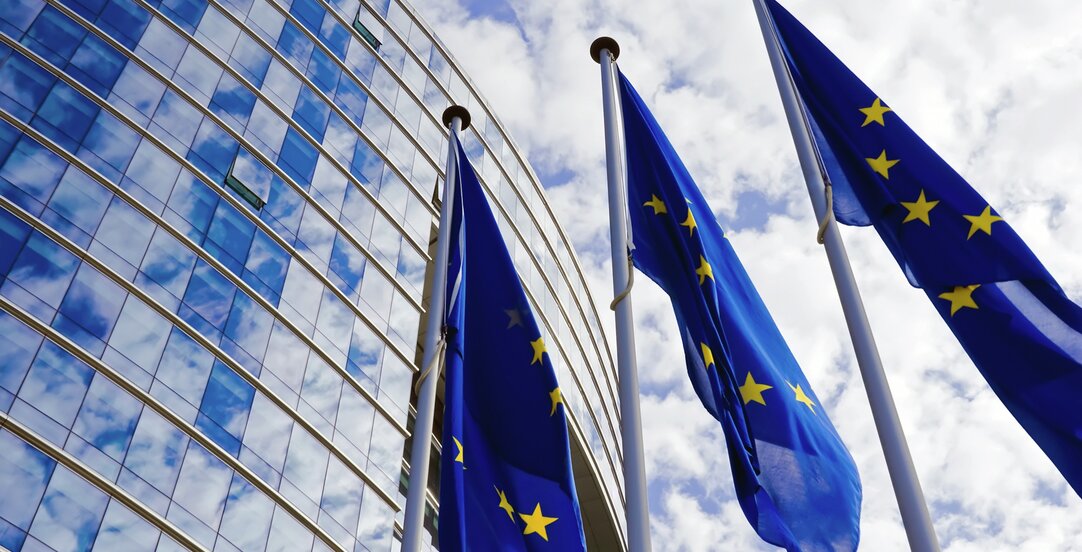The Foreign Subsidies Regulation now in force

The Foreign Subsidies Regulation ("FSR") (Regulation (EU) 2022/2560 of the European Parliament and of the Council of 14 December 2022 on foreign subsidies distorting the internal market) aims to expand EU/EEA state aid control to financial contributions from third countries, in order to prevent "foreign subsidies" from distorting the internal market.
Lesetid 7 minutter
The FSR grants the EU Commission ("Commission") new tools to combat such distortions, namely via (i) the imposition of a requirement for parties to notify certain concentrations and their participation in public procurement processes, where the parties involved have received financial contributions from a "third country" (i.e., non-EU member state), and (ii) a general power to undertake ex officio investigations in cases not subject to a notification requirement. This article focuses on the notification requirement for concentrations, which going forward will have to be factored into transaction planning as a specific item, in addition to merger control and other regulatory workstreams, for deals closing on or after 12 October 2023.
On 12 July the Commission adopted the FSR Implementing Regulation, (Commission Implementing Regulation (EU) 2023/1441 of 10 July 2023 on detailed arrangements for the conduct of proceedings by the Commission pursuant to Regulation (EU) 2022/2560 of the European Parliament and of the Council on foreign subsidies distorting the internal market) laying down procedures for, i.a., the notification of concentrations and their content. The Implementing Regulation, and a new Frequently Asked Questions site ("FAQ"), provide certain clarifications, in particular regarding the calculation of the notification thresholds, and the information to be reported. The amendments made to the final Implementing Regulation, versus its earlier draft, demonstrate some willingness on the part of the Commission to make the notification process more streamlined and efficient. This was in response to a significant amount of vigorous feedback from stakeholders on the burden imposed by the regime as initially proposed. However, it has now been made absolutely clear that financial contributions from EFTA states, such as Norway, may trigger a notification requirement, and Norwegian companies therefore need to take the FSR into account during larger-scale M&A activity going forward.
The notification requirement
The party(ies) obtaining sole or joint control, or the merging parties, must notify "concentrations" where:
- the acquired company, one of the merging parties, or the joint venture generates turnover (on group level) in the EU of at least €500 million; and
- where the parties to the transaction were granted combined aggregate foreign financial contributions of at least €50 million over the past 3 years.
A concentration arises where there is a change of control on a lasting basis, whether as a result of a merger, acquisition or the creation of joint venture. This notion will be familiar to anyone working with merger control.
The notion of "financial contribution" in this context is broad and comprises the transfer of funds or liabilities, the foregoing of revenue such as tax exemptions, or the provision or purchase of goods or services. The notion does not require that an economic benefit has been conferred on the recipient. So loans on market terms, capital injections yielding normal market return, and public purchases of goods and services at market price etc., are all relevant for determining whether the €50 million threshold is exceeded. This deviates from EU state aid law, where the notification requirement only applies to "state aid", which requires that a "benefit" is conferred on the recipient. However, the reporting of certain types of financial contribution in the notification form is simplified where it is essentially assumed that those contributions do not have a distortive impact, as further described below.
Certain other categories of foreign subsidy, however, are considered more likely to distort the internal market (also known as “Article 5 financial contributions"). This includes subsidies granted to ailing undertakings, those directly facilitating a concentration, or unlimited guarantees. Notifying parties are therefore required to provide significantly more detailed information to the Commission about these types of arrangements in a notification.
For Norwegian market players, the updated FAQ clarifies that the EFTA states (Norway, Iceland and Lichtenstein) are third countries under the FSR, and that financial contributions from EFTA states must therefore be counted when determining whether the notification threshold is met. As financial contributions from EFTA states are subject to identical state aid rules as the EU, and are controlled by the EFTA Surveillance Authority (ESA), this is a somewhat surprising approach. Norway has a great number of state aid schemes, such as Enova, Innovasjon Norge, and geographically differentiated employers' national insurance contributions, already approved by ESA or assessed to be in compliance with relevant EU/EEA regulations.
We hope that the Norwegian authorities will consider ways of remedying what appears to be an unnecessary burden for Norwegian entities, for example by implementing the FSR in Norway. That is, however, uncertain for the time being and in the meantime parties must include Norwegian financial contributions in their calculations. Not least because if companies fail to notify a concentration where required the Commission can, worst case, unwind the concentration and impose fines up 10% of the previous year's turnover on the parties concerned.
What must be reported in the notification?
Notifying parties have to report:
- For “Article 5 financial contributions”: detailed information on all financial contributions of an individual amount of at least €1 million that have been granted to the parties to the transaction over the past 3 years. This includes whether the financial contribution provided the recipient with some kind of a benefit not obtainable under normal market conditions.
- For all other foreign financial contributions: an overview of financial contributions granted to the notifying party(ies) over the past 3 years of an individual amount of a least €1 million and only in relation to those countries that have granted to the parties to the transaction at least €45 million in financial contributions over the same period, subject to some exceptions.
One such exception is revenue from public purchases of goods and services at market price. Market price is usually presumed when goods or service are purchased under a genuinely competitive, transparent and non-discriminatory tender procedure, such as the Norwegian public procurement rules, which are based on EU Directives. This information is relevant for determining if a filing is required, but does not need to be detailed in the filing form itself.
Specific rules also applies to investment funds (and legal entities controlled by or via that fund) where, provided that certain conditions are met, financial contributions granted to other investment funds managed by the same investment company (but with a majority of other investors) don't need to be disclosed. This should hopefully significantly reduce the notification burden on investment funds.
Other information to be reported to a large degree coincides with information that would need to be provided in a notification under the EU Merger Regulation, although there is an obligation to describe the impact on the internal market of the foreign financial contribution in the concentration, and other potential purchasers if the transaction took place via a structured bidding process.
The notifying party(ies) may submit reasoned requests for waivers to submit certain information required if information is not reasonably available or not considered necessary for the examination of the case, although it is unclear for the time being how willing the Commission will be to grant such waivers.
Process and timing
The notification requirement applies to concentrations signed on 12 July 2023 or later but which have not yet been closed by 12 October 2023.
Notifications must be submitted prior to the implementation of the concentration and following the conclusion of the relevant agreements, the announcement of the public bid, or the acquisition of a controlling interest. The notifying party(ies) is encouraged to engage in pre-notification discussions in sufficient time prior to the notification, preferably on the basis of a draft notification. Pre-notification contact is encouraged from September 2023, and works in a similar way to EU merger control pre-notification contact.
Also as in merger control cases, a standstill obligation is imposed during the Commission's review, except in the cases of public bids, on certain conditions. This means that a concentration cannot be implemented until the Commission has finished its investigation and provided approval. The time limits for review mirror the EU Merger Regulation. The Commission has 25 working days to perform a preliminary review. Where the Commission has sufficient indications that an undertaking has been granted a foreign subsidy that distorts the internal market, it shall initiate an in-depth investigation, time limited to 90 days, with a possible 15-day extension where commitments are offered to remedy the alleged distortion.
The essence
In summary, the entry into force of the FSR gives rise to a substantial new workstream during M&A activity of significant value, that must be factored in early in the transaction process. The examination of any public financial contributions received by a target company, and their possible effect on the transaction, also needs to be included in due diligence processes. Purchasers who might be subject to the FSR also need to find a way of tracking financial contributions they receive on an ongoing basis, to avoid unnecessary delays in transaction implementation.
